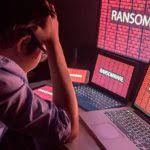Probiotic company Yakult Australia struck by cyber attack.
Probiotic company Yakult Australia is the latest victim of a cyber attack. The company’s records and sensitive employee documents dating back to 2001 have been leaked and published on the dark web.
Both the company’s Australian and New Zealand IT systems were subject to the incident, which saw 95 gigabytes of data stolen. It is believed the theft was a ransomware attack a cybercrime where hackers attempt to extort money from a company.
In a statement published on the company’s website, Yakult Australia said they were working with cyber incident experts to investigate the extent of the attack and which data and systems may have been impacted.
The recent cyber-attack on probiotic company Yakult Australia has once again highlighted the increasing threat of cybercrime in today’s digital age. With 95 gigabytes of data stolen, including sensitive employee documents dating back to 2001, this attack serves as a stark reminder of the devastating consequences of cyber-attacks on businesses.
According to reports, both the company’s Australian and New Zealand IT systems were targeted in this incident. It is believed that the hackers utilized ransomware, a form of cybercrime where hackers hold data or systems hostage in exchange for money. The stolen data was then published on the dark web, further emphasizing the severity of this attack.
In a statement published on their website, Yakult Australia expressed their concern and stated that they were working with cyber incident experts to investigate the extent of the attack and which data and systems may have been impacted. The company also assured their customers that they were taking necessary steps to secure their IT systems and protect their data.
This incident serves as a wake-up call for all businesses, big or small, to take cybersecurity seriously. With the increasing reliance on technology and the growing threat of cyber-attacks, it is crucial for companies to have robust security measures in place to safeguard their data and systems.
One of the major challenges for businesses in today’s digital landscape is the constantly evolving nature of cyber threats. Hackers are becoming smarter and more sophisticated in their attacks, making it difficult for companies to keep up with the pace. This highlights the need for regular risk assessments and updates to security protocols to ensure businesses are well-equipped to handle potential cyber-attacks.
Another important aspect to consider is employee awareness and training. Often, employees are the weakest link in a company’s cybersecurity defense. It is important for companies to educate their employees about cyber threats and how to identify and report suspicious activities. Regular training sessions and simulated cyber-attack drills can also help employees understand the importance of cybersecurity and the role they play in protecting their company’s data.
Furthermore, companies must ensure that they have a robust incident response plan in place in case of a cyber-attack. This includes having backups of data, a crisis communication plan, and a team of experts ready to handle any potential breaches. A quick and efficient response can minimize the damage caused by a cyber-attack and help the affected company recover faster.
In light of this recent attack on Yakult Australia, it is evident that no business is immune to cyber threats. It is crucial for companies to take proactive measures to protect their data and systems to avoid falling victim to such attacks. As the saying goes, “prevention is better than cure,” and this holds true in the world of cybersecurity as well.
In conclusion, the cyber-attack on Yakult Australia serves as a reminder of the ever-growing threat of cybercrime and the importance of implementing robust cybersecurity measures. It is crucial for businesses to stay vigilant, regularly assess and update their security protocols, and educate their employees to prevent such incidents from occurring in the future. Let this incident be a lesson for all businesses to prioritize cybersecurity and take necessary precautions to safeguard their data and systems.








